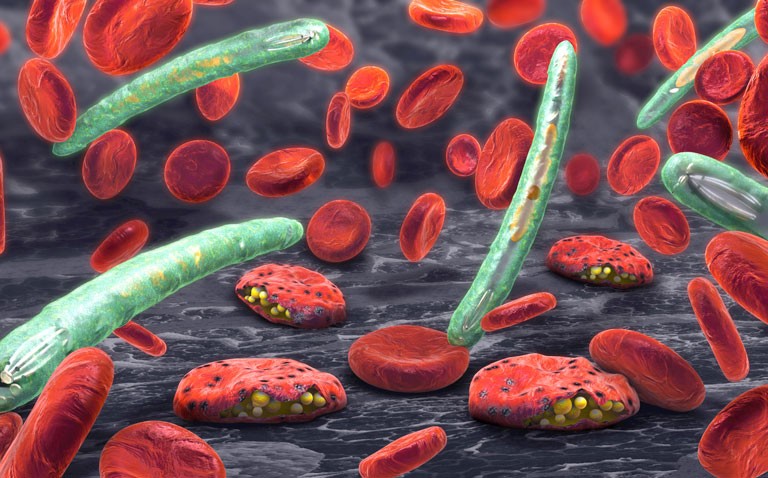With only a single malaria vaccine with limited efficacy, the search continues for more effective agents.
The parasite Plasmodium falciparum (P. falciparum) is responsible for malaria and which is a leading cause of both morbidity and mortality across the globe. RTS,S, brand name Mosquirix, is the only vaccine available to treat malaria and was approved by the EMA in 2015. Sporozoites are the form of the parasite that enter the body and Mosquirix contains part of the P. falciparum circumsporozoite protein (CSP) and leads to the generation of anti-circumsporozoite antibodies. However, in children, the vaccine efficacy is only 56% whereas the World Health Organization’s strategic goal is for a malaria vaccine to have an efficacy of 75%. This led researchers from the Jenner Institute, University of Oxford to undertake a double-blind, randomised, controlled trial using a vaccine named R21, which is a novel pre-erythrocytic candidate that also targets part of the CSP. The vaccine combines R21 with Matrix-M (MM), an adjuvant which increases immunogenicity. The team recruited children aged 5–17 months in the catchment area of Nanoro, Burkina Faso (West Africa) and which represents a high area of malaria transmission, especially between June and November. All children were randomised to one of three groups; group 1 received a lower dose of MM (i.e., 5 mcg R21/25mcg MM); group 2, a higher dose of MM (5 mcg R21/50mcg MM); and a control group (group 3) who received a control vaccine (rabies). Three doses were administered at 4-week intervals prior to the main malaria season (early May to August) and all participants received a fourth booster dose 12 months after their third vaccination. The primary outcome assessed was protective efficacy from 14 days after the third vaccination to 6 months and clinical malaria was defined in terms of an axillary temperature greater than 37.5 degrees centigrade and a P. falciparum density of greater than 5000 parasites/micro-litre.
Findings
A total of 450 children were included in the trial with a mean age of 11.6 months and 222 female participants. Moreover, there were 186 cases of clinical malaria, 43 in group 1, 38 in group 2 and 105 in group 3 (control). Using a Cox regression model which compared group 1 to 3, vaccine efficacy was 74% (95% CI 63 – 82, p < 0.001) and between group 2 and 3, the efficacy was 77% (95% CI 67 – 84, p < 0.0001). Efficacy was also assessed after 12 months at which point, the efficacy was 71% (group 1 vs group 3) and 77% (group 2 vs group 3). The authors calculated that the number of cases averted by the group 1 regime over 12 months would be a rate reduction of 1393 cases per 1000 children years.
The authors observed, however, that antibody levels in groups 1 and 2 decreased over the 12-month period but were boosted back to the levels achieved after the third dose, 28 days after the 4th dose.
Although this is the first study to report on the vaccine, the trial is continuing for a second malaria season to determine the durability of this high level of vaccine efficacy.
Citation
Datoo MS et al. High efficacy of a low dose candidate malaria vaccine, R21 in adjuvant Matrix-MTM, with seasonal administration to children in Burkina Faso. Lancet 2021










